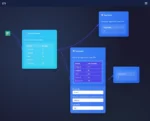In today’s customer-centric business landscape, meeting customer demands is paramount for organizations seeking to gain a competitive edge and foster long-term success. Accurate demand forecasting plays a crucial role in enabling businesses to meet customer demands effectively and starts with data engineering consulting.
By understanding demand patterns, fluctuations, and preferences, organizations can align their inventory levels, production capacities, and supply chain logistics to ensure timely order fulfillment. This article explores the significance of meeting customer demands through accurate demand forecasting and its direct impact on customer satisfaction and loyalty.
The Importance of Meeting Customer Demands:
Enhanced Customer Satisfaction: Meeting customer demands is the bedrock of ensuring enhanced customer satisfaction. When a business actively listens to its customers, understands their needs, and promptly delivers on their expectations, it paves the way for positive customer experiences that lead to customer delight. These moments of delight are crucial in establishing a strong, positive rapport between the business and its clientele. Here’s how enhanced customer satisfaction plays a pivotal role:
- Repeat Business: Satisfied customers are more likely to become repeat customers. When individuals find a business that consistently meets their needs and expectations, they naturally gravitate towards making subsequent purchases from that business. This repeat business is not just about immediate sales but also long-term customer value.
- Word of Mouth Recommendations: Satisfied customers often become enthusiastic advocates for a brand. They willingly share their positive experiences with friends, family, and colleagues, effectively becoming ambassadors for the business. These word-of-mouth recommendations can significantly boost a company’s reputation and attract new customers.
- Positive Online Reviews and Ratings: Meeting customer demands also leads to positive online reviews and higher ratings on platforms like Google, Yelp, or TripAdvisor. These reviews serve as social proof for prospective customers, reinforcing the company’s credibility and desirability.
- Customer Retention: Customer satisfaction is a critical driver of customer retention. Businesses that consistently meet customer demands not only acquire new customers but also retain their existing ones, reducing customer churn.
Increased Customer Loyalty
Meeting customer demands consistently fosters customer loyalty, which goes beyond just keeping customers satisfied. Customer loyalty is a deep and emotional connection that customers develop with a business, and it results from various aspects of excellent service and product quality. Here’s why customer loyalty is integral to a business’s success:
- Trust and Confidence: Reliable and timely order fulfillment instills trust and confidence in customers. When they know that their needs will be met as expected, they are more likely to stick with the business, as trust is a crucial factor in customer loyalty.
- Repeat Purchases: Loyal customers not only continue doing business with a company but also tend to make more frequent purchases. This increased purchase frequency contributes significantly to the company’s revenue and profitability.
- Long-term Relationships: Customer loyalty often translates into long-term relationships. These enduring connections between customers and businesses are mutually beneficial, as they provide stability and a steady revenue stream for the business while offering customers consistent and dependable solutions to their needs.
- Higher Customer Lifetime Value: Loyal customers tend to have a higher customer lifetime value (CLV). This metric represents the total revenue a business can expect to earn from a single customer throughout their engagement with the company. Businesses with high customer loyalty typically enjoy a significantly greater CLV.
- Brand Ambassadors: Loyal customers often take on the role of brand ambassadors, actively promoting the business to their networks. This advocacy can significantly influence others’ perceptions and decision-making, leading to business growth through word-of-mouth referrals and recommendations.
Minimized Stockouts and Backorders
Accurate demand forecasting plays a vital role in ensuring that a business can consistently meet customer demands. Here’s how this benefits both customers and the business:
- Enhanced Customer Satisfaction: By accurately predicting and aligning inventory levels with customer demands, businesses can ensure that products are readily available when customers need them. This minimizes instances of stockouts and backorders, preventing customer frustration and dissatisfaction.
- Preventing Missed Sales Opportunities: Having products available when customers want to buy them eliminates missed sales opportunities. When customers can’t find what they need, they might turn to competitors or delay their purchases, both of which can cost the business revenue.
- Protecting Revenue: Minimizing stockouts and backorders is essential for protecting a business’s revenue. Unfulfilled orders not only lead to lost sales but can also damage a company’s reputation and drive customers away, resulting in long-term revenue losses.
In summary, meeting customer demands is pivotal for businesses looking to excel in today’s competitive market. It not only ensures enhanced customer satisfaction and increased loyalty but also helps businesses operate efficiently by minimizing stockouts and backorders. Ultimately, this customer-centric approach fosters growth and long-term success for the company.
One crucial element in effectively meeting customer demands is the utilization of data and analytics. This is where Tableau consulting becomes highly important. Tableau is a powerful data visualization and business intelligence tool that can help businesses gain insights into customer behavior, preferences, and market trends. Through Tableau consulting, companies can harness the full potential of their data, making it easier to understand customer demands, forecast future needs, and optimize their operations to meet those demands effectively. By using Tableau to create visually compelling reports and dashboards, businesses can make data-driven decisions that improve customer satisfaction, enhance loyalty, and minimize supply chain issues. In this way, Tableau consulting is an integral part of the strategy for meeting customer demands and maintaining a competitive edge in the modern business landscape.
Meeting Customer Demands through Accurate Demand Forecasting:
Accurate demand forecasting is the cornerstone of ensuring that a business can meet customer demands effectively. It involves a comprehensive approach that draws on various elements to make predictions about future customer requirements with a high degree of precision. This process not only aids in satisfying current customer needs but also positions the business to anticipate and adapt to changing demands. Here’s a closer look at how accurate demand forecasting can be achieved:
Historical Sales Data Analysis
Accurate demand forecasting begins with a thorough analysis of historical sales data. By meticulously examining past sales patterns, businesses can identify valuable insights. This analysis helps identify trends, seasonality, and other factors that influence customer demand. For instance, it can reveal if certain products experience higher demand during specific seasons or if customer preferences tend to shift over time. This historical perspective forms the foundation for predicting future demand more accurately. Armed with these insights, businesses can make informed decisions on inventory levels, production schedules, and marketing strategies.
Market Research and Customer Behavior Analysis
Understanding market trends and customer behavior is essential for meeting customer demands effectively. By conducting market research and analyzing customer preferences, businesses can gain a deep understanding of the market environment. This insight helps in recognizing changing consumer needs, emerging trends, and evolving purchasing patterns. Market research and customer behavior analysis enable organizations to tailor their product offerings and marketing approaches, ensuring they remain in sync with customer expectations. The ability to adapt to these shifting dynamics is crucial in retaining existing customers and attracting new ones.
Collaboration across the Supply Chain
Meeting customer demands requires more than just insights; it demands a synchronized effort across the entire supply chain. Businesses must collaborate with suppliers, manufacturers, and distributors to ensure seamless coordination and efficient operations. Sharing demand forecasts with partners in the supply chain enables them to plan and allocate resources accordingly. This collaboration enhances supply chain visibility, reduces lead times, and ensures that products are delivered in a timely manner. By working together, the various components of the supply chain can align their operations with forecasted demand, reducing the chances of stockouts and backorders. This, in turn, results in improved customer satisfaction and better business performance.
Accurate demand forecasting is a complex and data-intensive process that can be greatly enhanced through advanced analytics consulting. Advanced analytics techniques, such as machine learning, predictive modeling, and data mining, can unlock deeper insights from historical sales data and customer behavior patterns. They can also automate the forecasting process, making it more efficient and accurate. Advanced analytics consulting can empower businesses to leverage the full potential of their data, ensuring that they are well-prepared to meet customer demands and adapt to the ever-evolving market landscape. In today’s data-driven business environment, advanced analytics consulting is not just an advantage; it’s a necessity to remain competitive and agile in meeting customer demands effectively.

























